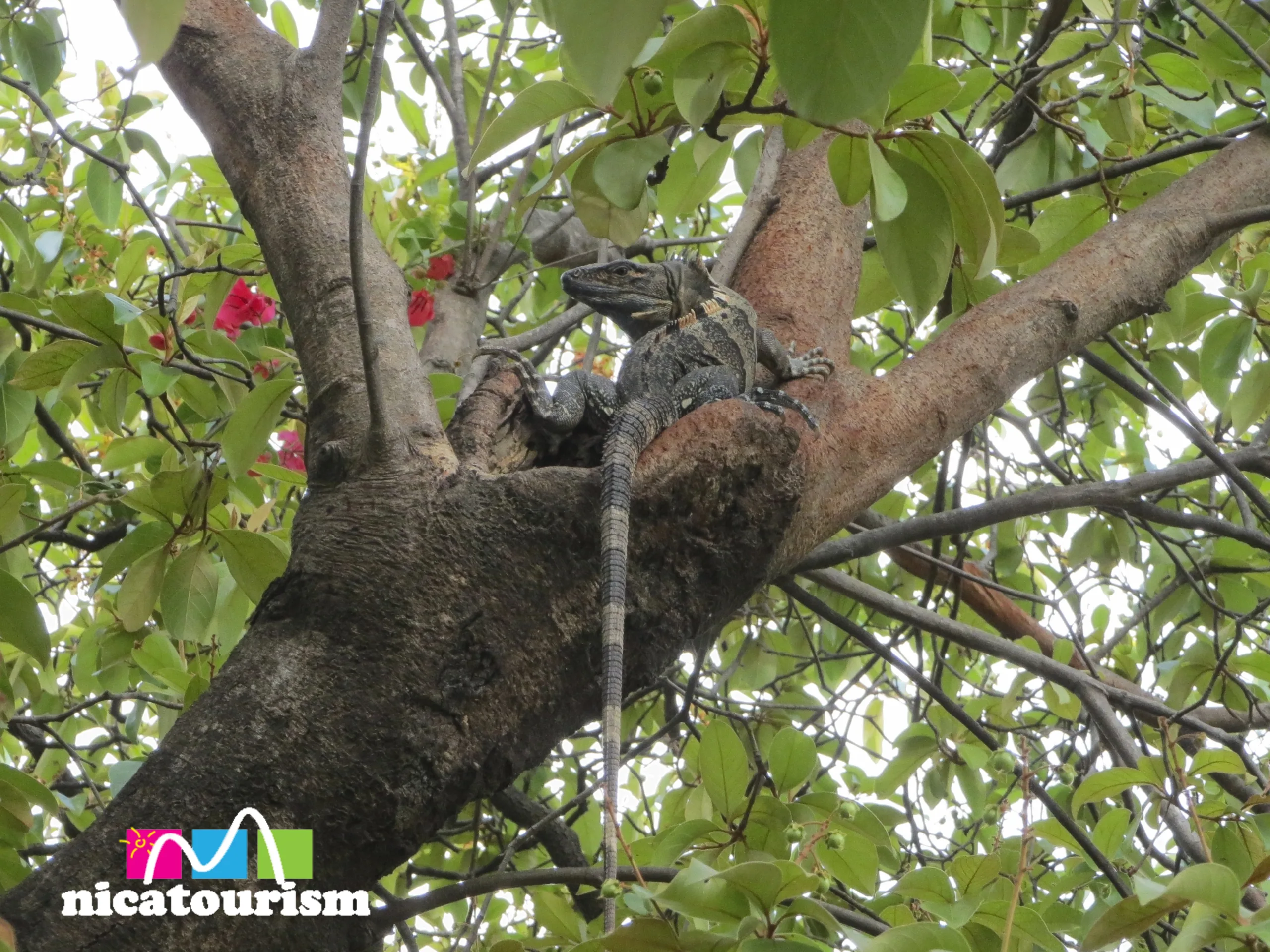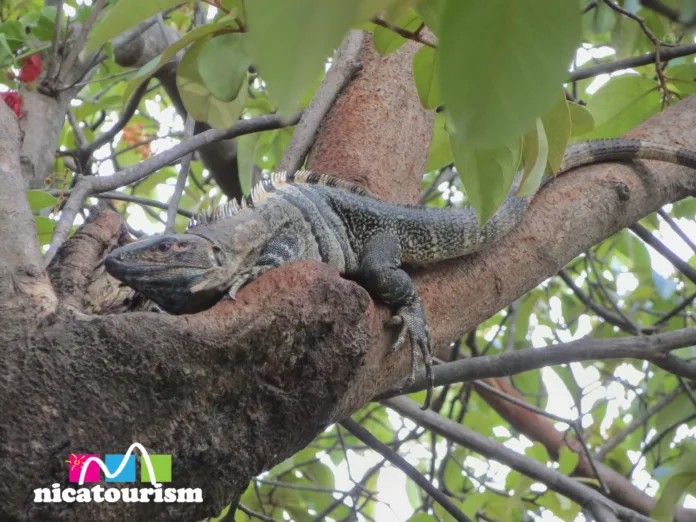
I am not an expert on reptiles so I can’t tell you if this is a Nicaragua iguana or a Nicaragua garrobo but it is a nice little friend that lives on the same property we do. He/she has become quite “tame” or curious as you will. We both were looking at each other for quite a bit yesterday. I am glad this place is fenced in or he/she would be eaten already as they are quite favored for their meat, in typical Nicaraguan dishes.
Nicaraguan garrobo and iguana are both reptiles, but they belong to different genera and have several differences:
Taxonomy:
- Nicaraguan Garrobo: The Nicaraguan garrobo, also known as the black iguana (Ctenosaura similis), belongs to the genus Ctenosaura. It is a type of iguana, but it is not in the same genus as the green iguana.
- Iguana: “Iguana” is a general term used to describe various species of iguanas. Green iguanas (Iguana iguana) are a well-known species of iguana, but there are several other species in the Iguanidae family, such as the black iguana (Ctenosaura similis).
Appearance:
- Nicaraguan Garrobo: they are usually larger and bulkier than green iguanas. They have rough, spiny scales and are typically dark gray or black in color, which helps them absorb heat more efficiently.
- Iguana: Green iguanas, as the name suggests, are often green in color, although they can vary in shades. They have a slender body, long tail, and a crest of spines along their back.
Habitat:
- Nicaraguan Garrobo: These reptiles are commonly found in Central America, including Nicaragua, and are often seen in arid or semi-arid regions. They are excellent climbers and are frequently found in trees and rocky outcrops.
- Iguana: Green iguanas are primarily found in Central and South America, as well as the Caribbean. They tend to inhabit more tropical and forested environments, including rainforests and coastal areas.
Diet:
- Nicaraguan Garrobo: They are primarily herbivorous, feeding on leaves, flowers, fruits, and other plant matter. They may also eat insects and small vertebrates on occasion.
- Iguana: Green iguanas are primarily herbivorous as well, with a diet consisting mainly of leaves, flowers, and fruits. However, they may also consume some insects and other small prey.
Behavior:
- Nicaraguan Garrobo: These reptiles are known for their agility and are often seen basking in the sun. They are diurnal and are active during the day.
- Iguana: Green iguanas are also diurnal and spend a lot of time in trees. They are known for their territorial behavior and may display dominance and aggression.
In summary, while both are reptiles, they differ in terms of taxonomy, appearance, habitat, diet, and behavior. The Nicaraguan garrobo is a specific species of iguana belonging to the genus Ctenosaura and is typically found in arid regions, while the term “iguana” can refer to various species within the Iguanidae family, with green iguanas being one of the most well-known species. Green iguanas are often found in tropical and forested environments.
Read more about these reptiles in Nicaragua:



